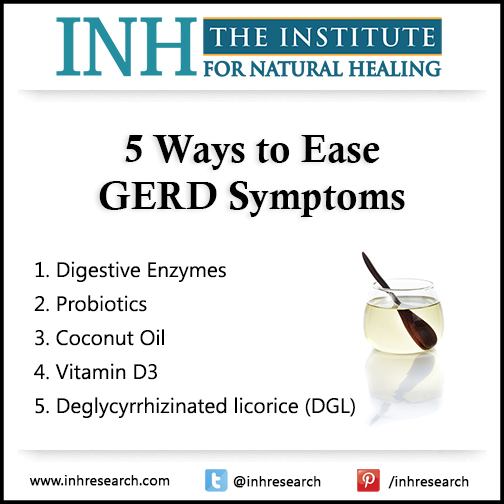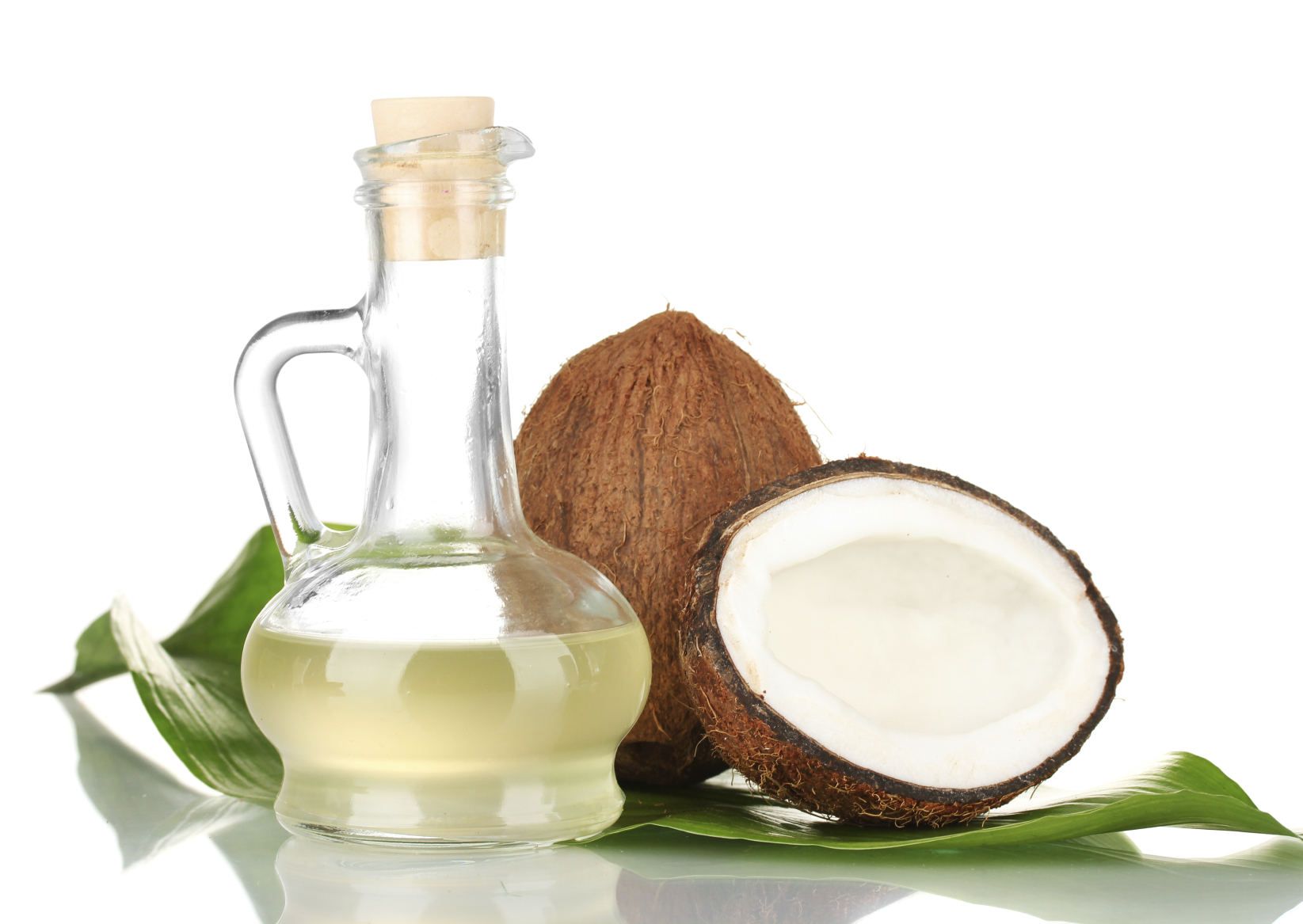Having gastroesophageal reflux disease—GERD—may do more than just make you dread your next meal. It can lead to more threatening illnesses over time… Like Barrett’s esophagus and esophageal cancer.1
Your doctor may recommend OTCs or prescription antacids. Even antibiotics. But these won’t fix the problem. They’ll likely do more harm than good. Using proton pump inhibitors—one of the most common forms of antacids—can increase your heart attack risk by 16%–21%.
Here are five safe, natural ways to ease GERD symptoms.
1. Get Acidity Under Control: High levels of stomach acid don’t cause GERD symptoms. Too little acidity is the real problem. Normal pH levels range from 1.5 to 3.5.2 And if you remember your pH scale, that’s acidic.
When your stomach’s pH level isn’t acidic enough, you don’t produce enough digestive enzymes. So food and acid stay in the stomach longer than they should. This gives them more opportunity to travel back up the esophagus. That’s what causes the burning sensation of heartburn.
Help your stomach digest food properly by taking a high quality enzyme supplement. One with a combination of lipase, amylase, and protease from whole food sources. These help break down the fats, carbohydrates, and proteins you eat. This will help food move on to the next stage of digestion—without coming back up.3
Take it a few minutes before each meal to help improve your digestion. These supplements are easy to find online and at your local health food store.
2. Enlist Good Bugs: They do more than keep blood sugar levels low and fight allergies. Research shows probiotics may also help lower inflammation that makes GERD symptoms worse.
Probiotics help keep H. pylori in check. It’s a type of bacteria that damages the mucous lining in your digestive tract. Having it can lead to inflammation and ulcers. It can also lower the acid levels in your stomach—so it can continue living there.4
Other “bad” bacteria like this low-acid environment as well. And when too much of them build up… It leads to even more inflammation. Probiotics help restore beneficial bacteria. The result? A bigger army to fight off bad bacteria and ease inflammation.
Eating fermented foods like sauerkraut and drinking kombucha tea provides a healthy dose of probiotics. But it can be difficult to get enough through diet alone.
Your best bet may be to take a supplement with at least 10 billion CFUs—colony forming units—of a variety of probiotics. Just keep in mind that it may take a month or so to start seeing major results. So be as consistent as you can.
3. Kill Harmful Bacteria: Your doctor may tell you to avoid all fatty foods if you have GERD. But coconut oil is not like the bad fats that can aggravate your symptoms. It reduces inflammation. Using it may even help prevent bacterial overgrowth.
That’s because it contains the medium chain triglyceride (MCT) lauric acid. It kills off harmful bacteria—like H. pylori—without affecting healthy bacteria. That’s more than we can say about antibiotics.
Cold-pressed extra virgin coconut oil is what you want. The easiest way to get it in your diet is to eat a teaspoon or two a day. Start by adding it to meals you already eat. You can also try blending it into your tea or coffee.
4. Strengthen Your Digestive Muscles: There are plenty of reasons to get more vitamin D3. It fights cancer and could help you live longer. But if you have GERD, you’ll also benefit from its ability to strengthen muscles.5
Getting more D3 could help strengthen your LES. Remember, that’s the muscle that is weak in people with GERD. It allows stomach acid to go where it isn’t supposed to. Strengthening your LES could keep stomach contents where they belong…and out of your esophagus.
One woman even said that taking 2,000-5,000 IU of vitamin D3 each day got rid of her symptoms completely.6 But you won’t get that from eating food. Your best bet is to get about 10 minutes of sunlight during peak sun hours. This will give you all the natural D3 you need. You can also take a supplement. Aim for 5,000 IU a day.
5. Reinforce Your Digestive Tract: When you think of licorice, candy probably comes to mind. Deglycyrrhizinated licorice (DGL) is much different. It’s a form that doesn’t have any glycyrrhizin. That’s a compound that can cause high blood pressure. Research shows DGL is just as effective against heart burn as OTC antacids. But without the side effects.
It works by stimulating blood flow and mucous secretion throughout your digestive tract.7 It sounds gross. But more mucous is what your esophagus and stomach need to protect against stomach acid damage.
You can use DGL long term, but only take it when you feel symptoms coming on.
DGL is easy to find in chewable tablets. And they taste much better than the OTC antacids you’ve tried. The best way to prevent GERD-related discomfort is to chew two 380 mg tablets 20 minutes before meals.
These five natural solutions may be all you need to ease your GERD symptoms… And keep them from coming back. Even if you don’t have GERD, they can help improve your digestive health. This could mean helping you prevent GERD from ever developing in the first place.
Do you have a natural solution that works best for you? Let us know in the comments below.
In Good Health,

Angela Salerno
Publisher, INH Health Watch
Like this Article? Forward this article here or Share on Facebook.

References:
1http://my.clevelandclinic.org/health/diseases_conditions/hic_gastroesophogeal_reflux_disease_GERD/hic_Long-Term_Complications_of_GERD
2http://www.nlm.nih.gov/medlineplus/ency/article/003883.htm
3http://www.livestrong.com/article/381470-can-digestive-enzymes-help-gerd/
4http://www.ncbi.nlm.nih.gov/pubmed/9207257
5http://www.ncbi.nlm.nih.gov/pubmed/22895376
6https://www.vitamindcouncil.org/blog/vitamin-d-and-acid-reflux-august-mailbag-pt-3/
7http://www.integrativepro.com/Resources/Integrative-Blog/2013/Deglycyrrhizinated-Licorice-(DGL)-Supplementation

